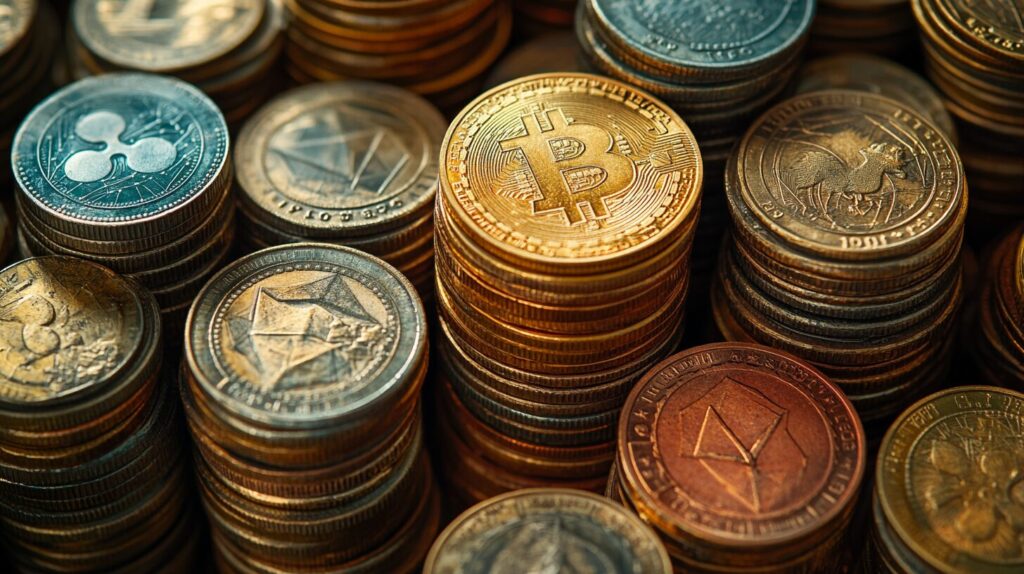Altcoins, short for “alternative coins,” refer to all cryptocurrencies other than Bitcoin. They emerged as alternatives to Bitcoin, aiming to address its limitations and expand the use cases of digital currencies. Altcoins offer diverse features, ranging from improved transaction speeds to enhanced privacy. Understanding altcoins is essential for anyone interested in the cryptocurrency market, as they play a significant role in the evolving financial landscape.
Understanding Altcoins
Altcoins encompass a wide variety of cryptocurrencies developed after Bitcoin’s success. They serve different purposes, such as facilitating faster transactions, providing more privacy, or enabling complex smart contracts. Ethereum, for example, introduced smart contracts, allowing developers to create decentralized applications. Altcoins often use different consensus mechanisms, like Proof of Stake (PoS) or Proof of Authority (PoA), to validate transactions. Understanding these differences helps investors make informed decisions about their cryptocurrency portfolios.
What are Different Types of Altcoins?
Altcoins can be categorized into several types based on their functionality and technology:
- Mining-based Altcoins: These use the Proof of Work (PoW) mechanism, similar to Bitcoin. Examples include Litecoin and Monero.
- Stablecoins: Designed to minimize volatility, their value is pegged to a stable asset like the US dollar. Examples include Tether (USDT) and USD Coin (USDC).
- Security Tokens: Represent ownership in an external asset or company. They are often used for fundraising through Initial Coin Offerings (ICOs).
- Utility Tokens: Provide access to a specific product or service within a blockchain ecosystem. Ethereum’s Ether (ETH) is a prime example, used to power transactions on the Ethereum network.
- Governance Tokens: Allow holders to vote on project decisions. Examples include Uniswap (UNI) and MakerDAO (MKR).
Advantages and Disadvantages of Altcoins
Altcoins offer several advantages:
- Diversity: Provide various functionalities and use cases.
- Innovation: Introduce new technologies and improvements over Bitcoin.
- Potential for High Returns: Early investments in promising altcoins can yield significant profits.
However, they also have disadvantages:
- Volatility: Many altcoins experience extreme price fluctuations.
- Regulatory Risks: Uncertainty in regulations can impact their value and legality.
- Scams and Fraud: The altcoin market has seen numerous fraudulent projects and scams.
What is the Best Altcoin?
Determining the best altcoin depends on individual investment goals and risk tolerance. Ethereum (ETH) is often considered the best due to its widespread use and robust ecosystem. Its smart contract functionality has made it the backbone of decentralized finance (DeFi) and non-fungible tokens (NFTs). Other notable mentions include Binance Coin (BNB) for its utility within the Binance ecosystem and Cardano (ADA) for its focus on sustainability and scalability.
What is the Future of Altcoins?
The future of altcoins looks promising, driven by continuous innovation and adoption. As blockchain technology advances, altcoins will likely offer more sophisticated features and solutions. They could play a crucial role in decentralized finance, supply chain management, and digital identity verification. Regulatory developments will also shape their future, potentially providing a more secure and stable environment for investors.
How to Invest in a Altcoin?
Investing in altcoins involves several steps:
- Research: Understand the technology, use case, and team behind the altcoin.
- Choose a Reliable Exchange: Use reputable exchanges like Binance, Coinbase, or Kraken to purchase altcoins.
- Diversify: Spread investments across different altcoins to mitigate risks.
- Stay Informed: Keep up with market trends, news, and regulatory changes.
- Secure Your Investments: Use hardware wallets and two-factor authentication to protect your assets.
What are Good Examples of Altcoins?
Some of the most notable altcoins include:
- Ethereum (ETH): Known for its smart contract capabilities and vast developer community.
- Litecoin (LTC): Offers faster transaction times and lower fees compared to Bitcoin.
- Ripple (XRP): Focuses on facilitating cross-border payments for financial institutions.
- Chainlink (LINK): Provides reliable data feeds for smart contracts through decentralized oracles.
- Polkadot (DOT): Enables different blockchains to interoperate and share information seamlessly.




